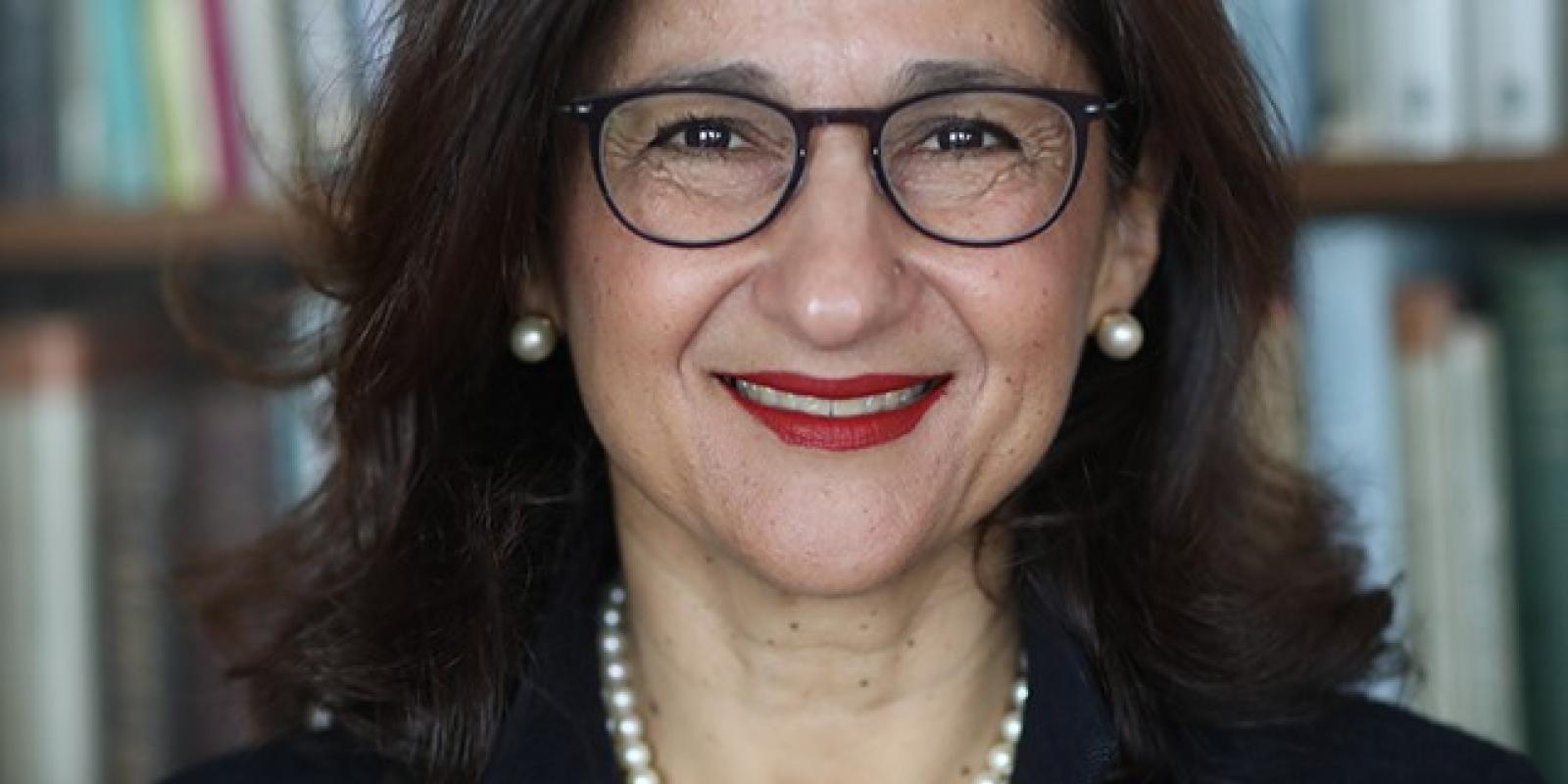
A Q&A With LSE Director Dame Minouche Shafik
This year’s annual Nadia Younes Memorial Lecture features Dame Minouche Shafik, director of the London School of Economics and Political Science (LSE) and the first woman in the school’s history to hold this position. Shafik's Lecture will be held on March 20 at 7 pm in Ewart Memorial Hall, AUC Tahrir Square. For more event details, click here.
With an illustrious career in economics, public policy and academia, Shafik has previously served as the vice president of the World Bank, permanent secretary for the Department for International Development, deputy managing director of the International Monetary Fund, and deputy governor of the Bank of England. Shafik was made a Dame Commander of the British Empire in the Queen’s New Year’s Honors list in 2015 and holds honorary doctorates from the University of Warwick, the University of Reading, and Glasgow University.
Currently, Shafik serves as a trustee of the British Museum, the council of the Institute for Fiscal Studies, the governor of the National Institute for Economic and Social Research, and is an honorary fellow of St. Antony’s College Oxford.
Learn more about Shafik, why she became an economist, her current research interests, her plans for the London School of Economics and Political Science and more in this News@AUC Q&A with her.
As an economist, you’ve studied and worked on everything from monetary policy and banking to public policy and academia — all in the hopes of shaping a better economic future. Why do you believe economics is a powerful lens to address national and international problems?
Economics provides you with a rigorous framework for understanding major issues. It is the combination of theory and empirical evidence that makes it so powerful. Of course, economic models simplify reality, but they force you to think clearly about causation, what assumptions you are making and what incentives are influencing behavior. When those are tested against data, you can make real intellectual progress in better understanding the world.
What originally sparked your interest in the field?
I started off being more interested in politics and social problems — ranging from poverty to conflict to inequality — but found that the roots of these issues were often in economics.
Do you have any new projects and topics you are interested in pursuing or researching in the future?
I am very preoccupied with the social contract — the webs of obligations and opportunities that hold our societies together. It is motivated by a desire to heal the big divisions we see within and between many countries. I think these divisions are rooted in a lack of economic opportunity and tensions about identity. I have been thinking and writing about these issues recently, including how building a better welfare state and improving social mobility might be part of the solution.
As director of the London School of Economics and Political Science, what are your major priorities when running and shaping the program, and what do you want students to get out of their educational experience?
This generation is growing up in a digital age where information is abundant. Teaching them to memorize is a waste of time, since they can access information instantaneously on their phones. Education needs to be about helping them to think critically about information and to develop research skills, including data analytics. Because many routine and repetitive tasks will be automated in the future, “soft skills” will become more important — being able to work with others, creativity and emotional intelligence. At the London School of Economics and Political Science, we are rethinking our educational offer in light of these changes, and we are also expanding possibilities for people to retool and learn new things throughout their lives, since in the future, they are likely to work longer and change careers more often.
You are the youngest person to serve as vice president of the World Bank and the first woman in LSE's history to serve as its director. What accomplishment are you most proud of in your career path?
I am most proud of the teams I assembled around me. In each place, I have worked with highly talented people who went on to do great things after I left. Building institutional and human capability is the most lasting legacy one can leave.
What advice would you give to students who want to excel in their fields, economics or otherwise?
I would encourage them to take every opportunity to learn new things, whether it is part of your formal studies or outside the curriculum. When I was a student at AUC, I was fascinated with Islamic architecture and would spend time on the weekends wandering around Cairo, taking it all in. When I was in Amherst, LSE and Oxford, I would often attend lectures by visiting academics or public figures, or go to events organized by student societies. All of those experiences are enriching and complement what you study at university.
Do you have a hero? Someone who inspired you when you were an undergraduate?
I have had some wonderful teachers throughout my life and will always be grateful to them. Heba Handoussa who taught here at AUC was very generous with her advice when I was writing my PhD thesis. Her commitment to development was unwavering, and she found many ways to contribute — through research based on careful analysis of data, the students she taught and the many development projects and plans she oversaw. Last week, I had the opportunity to announce a new chair in inequality studies at LSE in honor of Amartya Sen, whose work also had a big influence on me.
What does it mean to you to have the opportunity to share your ideas and field questions from undergraduates at AUC at the Nadia Younes Lecture?
I am delighted to have this opportunity to talk to students at AUC, especially since I was a student here 40 years ago, which makes me feel a bit old!
